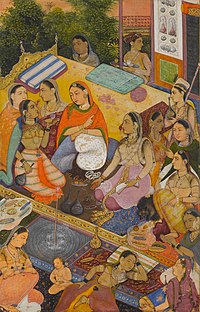
HUMAN RIGHTS VIOLATIONS IN THE TALIBAN-RULED AFGHANISTAN

Afghanistan has been in a state of turmoil since the Taliban took control of the country in August 2021. While the Taliban have attempted to present a more moderate image to the world, their track record on human rights is deeply troubling.
The group’s previous rule of Afghanistan, from 1996 to 2001, was characterized by a brutal and repressive regime, and there are already reports of human rights violations in areas under Taliban control. Human rights violations are occurring across a range of areas, from restrictions on women’s rights to the persecution of minority groups.
One of the most visible areas where the Taliban are violating human rights is in their treatment of women. The Taliban have long been known for their extreme views on gender, and they have already instituted a range of restrictions on women’s rights.
Women have been banned from working in many sectors of the economy, and have been told they must wear burqas in public. Women have also been told they cannot leave the house without a male escort, effectively confining many to their homes.
These restrictions on women’s rights are deeply concerning, not only because they violate fundamental human rights, but also because they have a profound impact on the lives of Afghan women. Women who were previously employed have been left without a source of income, and many are unable to access essential services like healthcare or education.
The Taliban’s restrictions on women’s rights are also likely to have a long-term impact on the country’s development, as women are an essential part of the workforce and play a critical role in society. The Taliban’s treatment of minority groups is also a major concern. Afghanistan is home to a range of ethnic and religious groups, and many of these groups have faced discrimination and persecution under the Taliban’s rule.
The Hazara community, in particular, has been targeted by the Taliban in the past, and there are already reports of violence against Hazaras in areas under Taliban control. Another area where the Taliban are violating human rights is in their treatment of journalists and the media.

The Taliban has already shut down several media outlets and arrested journalists who have been critical of their rule. The group has also reportedly been conducting door-to-door searches for journalists, indicating that they are willing to use violence to silence dissenting voices.
All of these human rights violations are deeply concerning, and there are fears that the situation could deteriorate even further as the Taliban consolidate its rule. The international community has an important role to play in addressing these violations and holding the Taliban accountable for their actions. Governments and civil society organizations around the world must speak out against the Taliban’s human rights abuses and take action to protect the rights of Afghan citizens.

Several steps can be taken to address the situation in Afghanistan. First and foremost, the international community must provide humanitarian aid to the Afghan people. Many Afghans are currently facing food shortages, and there are concerns about the country’s healthcare system. The international community must also work to ensure that women and minority groups can access essential services like healthcare and education.
In addition to providing humanitarian aid, the international community must also hold the Taliban accountable for their actions. Governments should impose sanctions on Taliban leaders and individuals responsible for human rights violations. The UN Security Council should also consider establishing a commission of inquiry to investigate human rights abuses in Afghanistan and identify those responsibly.
Finally, the international community must continue to provide support to civil society organizations in Afghanistan. These organizations are on the front lines of defending human rights in the country, and they need support to continue their work. Governments and non-governmental organizations should provide funding and other resources to these organizations to ensure that they can continue to defend the rights of Afghan citizens.

The Taliban, an Islamic extremist group, has been accused of committing numerous human rights violations during their rule in Afghanistan. These violations include: –
- Women’s Rights: The Taliban have a history of restricting
the rights of women in areas under their control. During their previous rule in the late 1990s, women were barred from working outside the home and were required to wear full-body coverings known as burqas. - Freedom of Speech and Press: The Taliban have a long
history of censorship and suppressing freedom of speech and press. They have been known to target journalists and media outlets that do not conform to their strict Islamic ideology - Religious Freedom: The Taliban follow a strict
interpretation of Sunni Islam and have been accused of persecuting religious minorities, including Shia Muslims and Christians. - Torture and Extra-judicial Killings: The Taliban have been
accused of using torture and extra-judicial killings as a means of controlling the population and enforcing their laws. 5. Forced Marriage and Child Marriage: The Taliban have been known to force women and girls into marriage, including child marriages, and have been accused of using rape as a weapon of war.
Since the Taliban took control of Afghanistan in August 2021, there have been reports of renewed human rights violations. Women have been told to stay indoors, banned from working outside the home, and subjected to beatings if they leave their homes without a male relative. The Taliban have also reportedly been targeting journalists, activists, and former government officials, with reports of executions and disappearances.
There have also been reports of the Taliban carrying out mass killings and forcing people to abandon their homes in certain areas. The situation in Afghanistan remains a concern for the international community, as human rights continue to be violated and basic freedoms restricted under Taliban rule. In conclusion, the situation in Afghanistan is deeply concerning, and the Taliban’s record on human rights is troubling.







